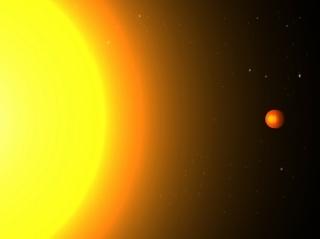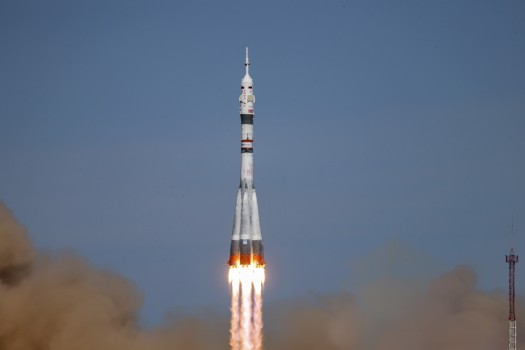
An artistic illustration of the planet Kepler 78b. Image: Cristina Sanchis Ojeda/MIT
WASHINGTON (PTI): Waking up to a new year! Researchers have discovered an Earth-sized exoplanet 700 light-years away that whips around its host star in a mere 8.5 hours -- one of the shortest orbital periods ever detected.
The fireball of a planet named Kepler 78b is extremely close to its star -- its orbital radius is only about three times the radius of the star.
Scientists have estimated that its surface temperatures may be more than 2760 degrees Celsius.
In such a scorching environment, the top layer of the planet is likely completely melted, creating a massive, roiling ocean of lava, researchers at Massachusetts Institute of Technology (MIT) said.
"We've gotten used to planets having orbits of a few days. But we wondered, what about a few hours? Is that even possible? And sure enough, there are some out there," said Josh Winn, an associate professor of physics at MIT, and co-author of the paper.
What's most exciting to scientists is that they were able to detect light emitted by the planet - the first time that researchers have been able to do so for an exoplanet as small as Kepler 78b.
This light, once analysed with larger telescopes, may give scientists detailed information about the planet's surface composition and reflective properties.
Kepler 78b is so close to its star that scientists hope to measure its gravitational influence on the star, researchers said.
Such information may be used to measure the planet's mass, which could make Kepler 78b the first Earth-sized planet outside our own Solar System whose mass is known.
From their measurements of Kepler 78b, the team determined that the planet is about 40 times closer to its star than Mercury is to our Sun.
The star around which Kepler 78b orbits is likely relatively young, as it rotates more than twice as fast as the sun -- a sign that the star has not had as much time to slow down.
While it is about the size of Earth, Kepler 78b is most certainly not habitable, due to its extreme proximity to its host star, researchers said.
The researchers report their discovery in The Astrophysical Journal.
 Previous Article
Previous Article Next Article
Next Article













The Indian Air Force, in its flight trials evaluation report submitted before the Defence Ministry l..
view articleAn insight into the Medium Multi-Role Combat Aircraft competition...
view articleSky enthusiasts can now spot the International Space Station (ISS) commanded by Indian-American astr..
view article